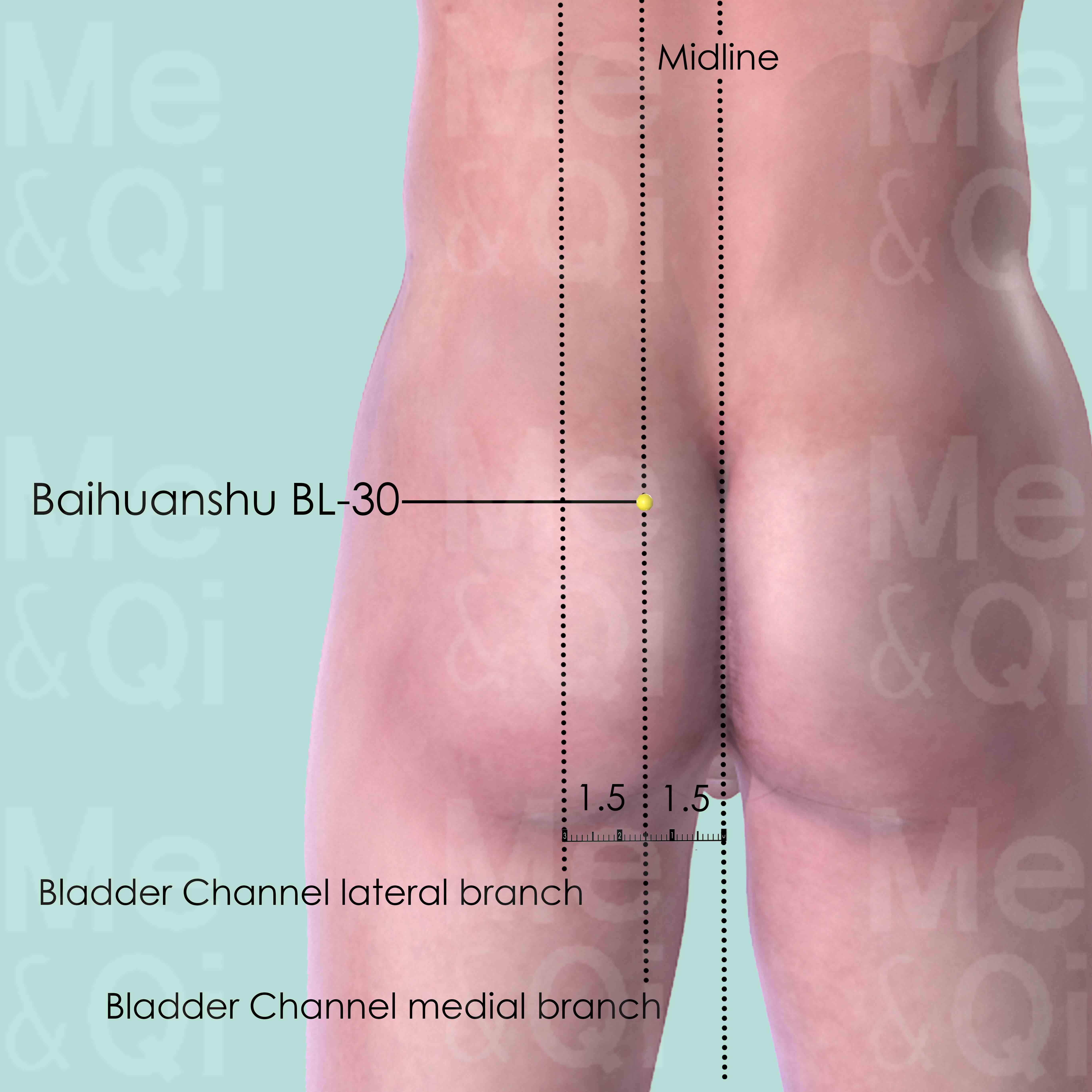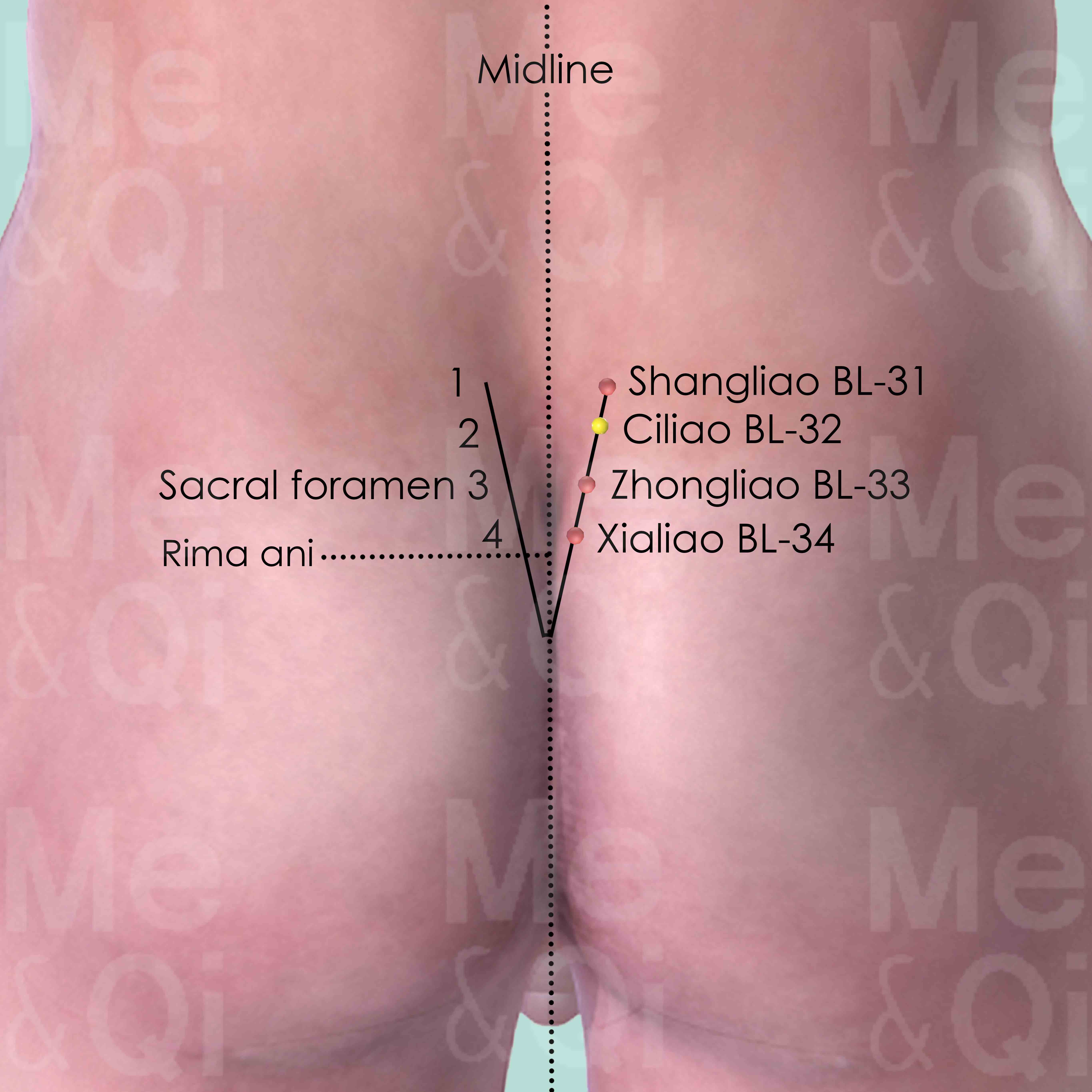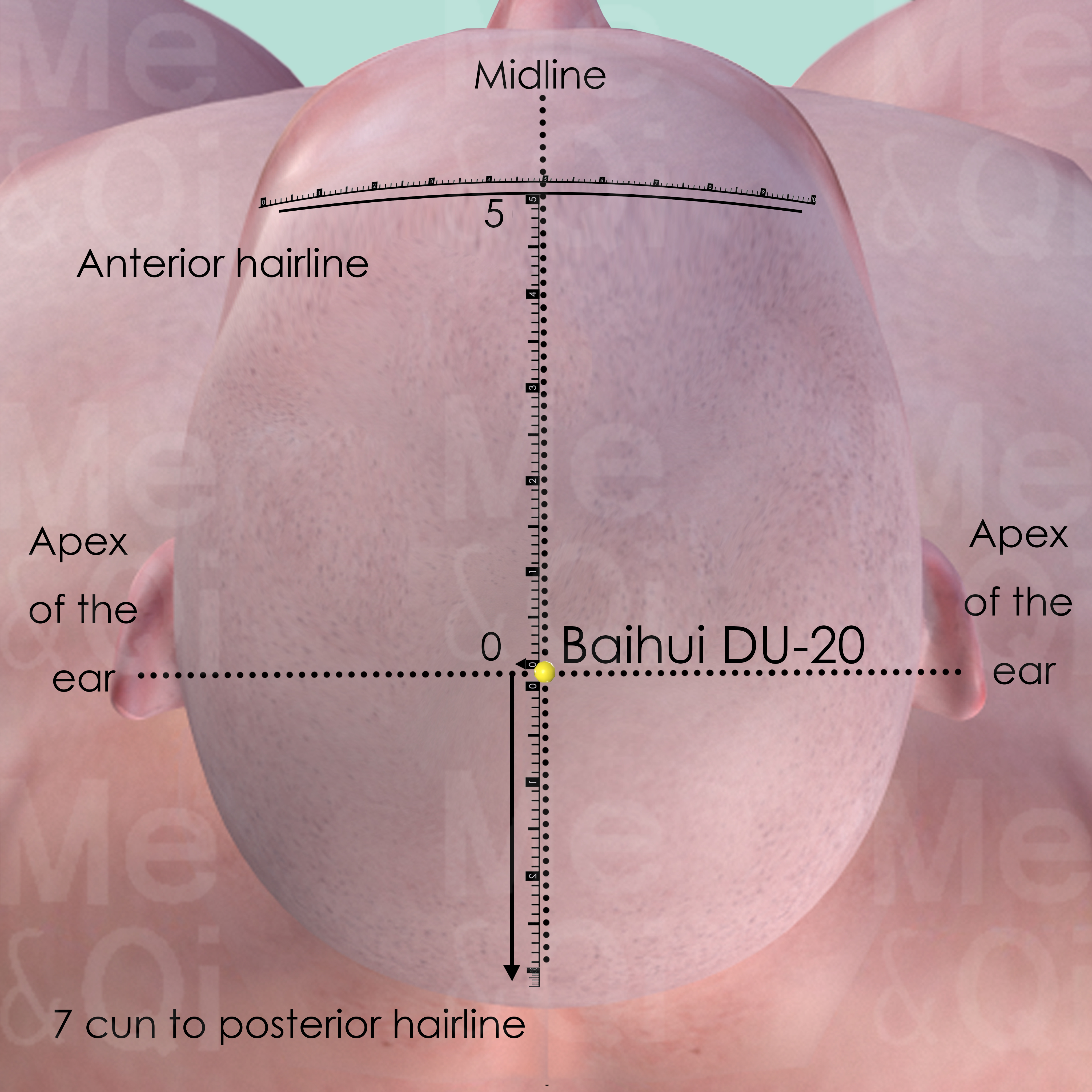Anus Prolapseaccording to TCM
Symptom family: Anal and Rectal Disorders and Symptoms
Did you mean? Rectal Prolapse
What is Anus Prolapse?
Anus prolapse, a medical condition, refers to the protrusion of the rectal tissues through the anal opening. This condition can result from various factors, including chronic constipation, excessive straining during bowel movements, weakened pelvic floor muscles, and aging. While the severity varies, this condition can lead to discomfort, pain, and difficulty with bowel movements.
TCM Perspective on Anus Prolapse
In Traditional Chinese Medicine (TCM), anus prolapse is viewed through the lens of holistic body balance and energy flow. TCM interprets this condition as a manifestation of internal disharmonies, particularly Qi (vital energy) Sinking or Collapse.
This perspective focuses on identifying and correcting underlying imbalances in the body's Qi, believed to be essential in maintaining organ and muscle function, including those in the rectal and pelvic areas.
TCM Causes of Anus Prolapse
TCM attributes anus prolapse to two primary patterns: Large Intestine collapse and Qi Collapsing or Qi Sinking. Large Intestine collapse is characterized by symptoms like chronic diarrhea, hemorrhoids, and general fatigue, often linked to weakened Qi in the large intestine.
Qi Collapsing or Sinking involves a broader spectrum of symptoms, including prolapse of various organs, bearing down sensation in the abdomen, and frequent urination, all indicative of a general weakness in the body’s vital energy. These patterns are seen as disruptions in the body's natural energy flow, leading to the physical manifestation of prolapse.
Root Causes of Anus Prolapse in TCM
Explore below more details about what might cause Anus prolapse according to TCM.
- By Syndrome
- By Organ
- Qi Sinking
- Large Intestine
- Spleen
Qi Sinking
Qi Sinking is a pattern of disharmony in TCM where the body's energy, or Qi, is thought to "sink" or drop down. Imagine a balloon slowly deflating and falling; that's similar to what happens with Qi Sinking. This can lead to feelings of heaviness, fatigue, and even physical symptoms like prolapse of organs or frequent urination. It's as if the body's energy, which usually supports and holds things in place, isn't able to do its job properly. TCM views this as an imbalance where the uplifting and supporting qualities of Qi are weakened.... see more
Qi Sinking Patterns That Can Lead to Anus Prolapse
Common Symptoms: Hemorrhoids Generalized Fatigue Lack Of Appetite Chronic Diarrhea Uterine Prolapse Prolapsed Bladder Stomach Prolapse Diarrhea
| Pattern Name | Relevant Symptoms | Relevant Formulas |
|---|---|---|
| Large Intestine collapse | Anus prolapse, Chronic diarrhea, Hemorrhoids, Generalized fatigue, Cold extremities, Lack of appetite, Mental exhaustion, Craving for hot beverages... see more | Bu Zhong Yi Qi Tang |
| Qi Collapsing or Qi Sinking | Anus prolapse, Uterine prolapse, Prolapsed bladder, Stomach prolapse, Nephroptosis, Bearing down sensation in abdomen, Hemorrhoids, Chronic diarrhea, Frequent and urgent urination, Urinary incontinence, Generalized fatigue, Low energy, Intestines prolapse, Vaginal prolapse... see more | Bu Zhong Yi Qi Tang | Du Shen Tang |
| Spleen Qi Sinking | Anus prolapse, Lack of appetite, Slight abdominal distension after eating | Bu Zhong Yi Qi Tang |
Large Intestine
In TCM the Large Intestine is primarily seen as responsible for the absorption of fluids and the excretion of waste. It is closely related to the Lung in terms of energy flow and function, reflecting the interconnectedness of organ systems in TCM. When the Large Intestine malfunctions, it can lead to issues such as constipation or diarrhea, abdominal pain, and an inability to let go of emotional waste, like holding onto grief or stress. This is in line with the TCM view that the physical and emotional aspects of health are deeply connected. An imbalanced Large Intestine can also manifest as skin problems, signifying the organ’s role in eliminating toxins and maintaining balance in the body’s internal environment.... see more
Large Intestine Patterns That Can Lead to Anus Prolapse
| Pattern Name | Relevant Symptoms | Relevant Formulas |
|---|---|---|
| Large Intestine collapse | Anus prolapse, Chronic diarrhea, Hemorrhoids, Generalized fatigue, Cold extremities, Lack of appetite, Mental exhaustion, Craving for hot beverages... see more | Bu Zhong Yi Qi Tang |
Spleen
In TCM the Spleen plays a vital role in digestion and transformation, converting food into energy and nutrients, and overseeing the distribution of Qi and Blood. It's also crucial in maintaining the health of muscles and limbs and ensuring the blood remains within the vessels. When the Spleen malfunctions in TCM, it can lead to a variety of issues such as digestive disorders, fatigue, weak muscles, bloating, and a feeling of heaviness. It can also cause a pale complexion, poor appetite, and a tendency to bruise easily. Emotionally, a Spleen imbalance is often associated with excessive worry or overthinking, reflecting its role in the interplay between physical and mental health.... see more
Spleen Patterns That Can Lead to Anus Prolapse
| Pattern Name | Relevant Symptoms | Relevant Formulas |
|---|---|---|
| Spleen Qi Sinking | Anus prolapse, Lack of appetite, Slight abdominal distension after eating | Bu Zhong Yi Qi Tang |
TCM Herbal Formulas for Anus Prolapse
In addressing anus prolapse, TCM emphasizes the use of specific herbal formulas that aim to tonify Qi and strengthen the body's internal energy. A key formula used is Bu Zhong Yi Qi Tang, featuring Milkvetch Roots (Huang Qi) as a primary herb.
This formula falls under the category of "Formulas that tonify Qi" and is specifically designed to enhance Qi, providing the necessary strength to the body’s internal systems to counteract the prolapse. Such treatment is tailored to restore balance and strengthen the body from within.
Explore below some TCM herbal formulas used to address anus prolapse, organized by cause and by formula type.
- By Cause
- By Formula Type
- Qi Sinking
- Formulas that tonify qi
- Formulas that rescue devastated yang
Top Formula for Qi Sinking:
Bu Zhong Yi Qi Tang
Suitable for Qi Sinking patterns that may cause anus prolapse, such as Large Intestine collapse or Qi Collapsing or Qi Sinking
Learn moreAll Formulas Recommended for Anus Prolapse Caused by Qi Sinking
| Formula | Patterns Suitable For |
|---|---|
| Bu Zhong Yi Qi Tang | Large Intestine collapse, Qi Collapsing or Qi Sinking, Spleen Qi Sinking |
| Du Shen Tang | Qi Collapsing or Qi Sinking |
Formulas that tonify Qi
These formulas are suitable for some anus prolapse-causing patterns like Large Intestine collapse or Qi Collapsing or Qi Sinking.
One such formula is Bu Zhong Yi Qi Tang, with milkvetch root as a key herb.
Formulas that rescue devastated Yang
These formulas are suitable for some anus prolapse-causing patterns like Qi Collapsing or Qi Sinking.
One such formula is Du Shen Tang, with ginseng as a key herb.
Acupoints for Anus Prolapse
TCM also employs acupuncture as a complementary treatment for anus prolapse. Specific acupoints targeted include Baihuanshu BL-30 and Ciliao BL-32 in the Bladder Channel, known for their benefits to the anus, lower back, and legs, as well as for regulating menstruation and urinary functions.
Baihui DU-20 in the Governing Vessel is another crucial point, renowned for its ability to expel Interior Wind, raise Yang, and benefit brain function. These acupoints are strategically chosen to harmonize the body’s energy flow, providing relief and aiding in the recovery from prolapse.
Explore below some acupoints used to address anus prolapse, organized by meridian.
- By Meridian
- Bladder Channel
- Governing Vessel

Baihuanshu BL-30
At the level of the 4th posterior sacral foramen, 1.5 cun lateral to the posterior midline.

Ciliao BL-32
In the 2nd posterior sacral foramen, about midway between the posterior superior iliac spine (PSIS) and the midline.

Baihui DU-20
At the vertex, at the junction of a line connecting the apex of the ears and the midline, in the depression 7 cun above the posterior hairline and 5 cun behind the anterior hairline.
